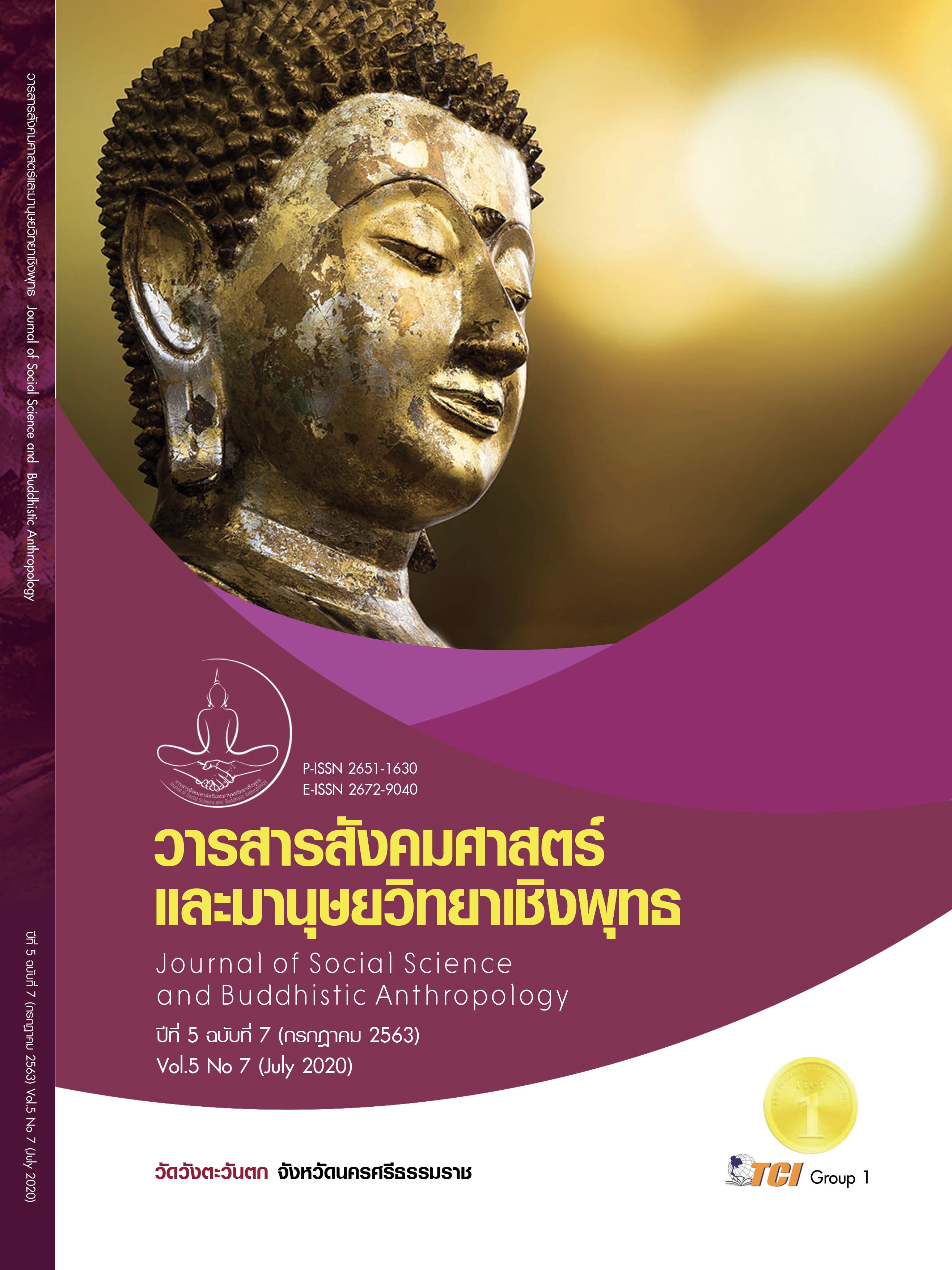DEVELOPMENT OF LEADERSHIP COMPETENCY MODEL FOR SUCCESS IN COMMUNITY ENTERPRISE MANAGEMENT
Keywords:
Leadership Development Model, Leadership, Community Enterprise ManagementAbstract
This research has two objectives 1) To study key factors of leadership competency in community enterprise management, 2) To create a leadership development model for community enterprise management. There are three informants: 1) Leaders of four community enterprises that received 2018-2019 National Outstanding Community Enterprise Award through selection by Department of Agricultural Extension from provincial level to national level, 2) The sample group of 400 community enterprise leaders from six regions of Office of Agricultural Extension and Development throughout the country, and 3) 30 Samut Songkram provincial community enterprise leaders who join the project from Mueang, Amphawa and Bang Khonthi Districts. The systematic research and development (R&D) research methodology is applied by using in-depth interviews, focus group discussions, questionnaire for data collection and synthesis of conceptual model. Qualitative and quantitative data analysis is applied: content analysis is used for qualitative study and factor analysis is used for quantitative study. Research findings show that key factors of leadership competency in community enterprise management include capabilities in risk management, problem solving, creative thinking, communication, decision making, self-development, knowledge management, marketing management, product management, socio-cultural capital development, environment management, network management, financial and accounting management, leadership, good personality, and having integrity and honesty. Besides, the leadership development model consists of three main parts 1) Assessment of enterprise’s self-development requirements in order for related agencies to conduct workshops according to requirements, 2) Arrangement of site visits relating to leadership competency, and 3) Organizing a forum to exchange knowledge between enterprises.
References
กลุ่มทะเบียนและสารสนเทศวิสาหกิจชุมชน. (2562). กองส่งเสริมวิสาหกิจชุมชน. เรียกใช้เมื่อ 2 เมษายน 2562 จาก http://sceb.doae.go.th/law.htm.
ฉัฐสิณี หาญกิตติชัย. (2559). ภาวะผู้นำประสิทธิผลของวิสาหกิจชุมชนและตัวแบบการพัฒนาภาวะผู้นำด้านการประกอบการ. ใน รายการประชุมสืบเนื่องการประชุมวิชาการมหาวิทยาลัยราชภัฏบุรีรัมย์,ครั้งที่ 4.
ชูใจ คูหารัตนไชย. (2546). สถิติเบื้องต้น. กรุงเทพมหานคร: มหาวิทยาลัยเทคโนโลยีมหานคร.
ธงพล พรหมสาขา ณ สกลนคร และอุทศ สังขรัตน์. (2556). แนวทางการพัฒนาการดำเนินงานของวิสาหกิจชุมชนในแต่ละลุ่มทะเลสาบสงขลา. สงขลา: มหาวิทยาวิทยาลัยสงขลานครินทร์.
วิภวานี เผือกบัวขาว. (2561). รูปแบบการพัฒนาภาวะผู้นำวิสาหกิจชุมชนด้านอาหารในจังหวัดประจวบคีรีขันธ์บน ฐานแนวคิดเศรษฐกิจพอเพียง. วารสารมนุษยศาสตร์และสังคมศาสตร์ มหาวิทยาลัยราชภัฏสุรินทร์, 20(2),223-236.
สุธีรา อะทะวงษา. (2557). คุณลักษณะที่สำคัญของการเป็นผู้ประกอบการวิสาหกิจขนาดกลางและขนาดย่อม. วารสารศรีปทุมปริทัศน์ ฉบับมนุษยศาสตร์และสังคมศาสตร์, 13(1),175-183.
โสภาพร กล่ำสกุล และวัชระเวชประสิทธ์. (2563). การพัฒนาสมรรถนะการบริหารจัดการของผู้ประกอบการผลิตภัณฑ์ชุมชนประเภทอาหารในจังหวัดเพชรบุรี. วารสารสังคมศาสตร์ มหาวิทยาลัยศรี-นครินทรวิโรฒ, 3(1), 11 - 23.









